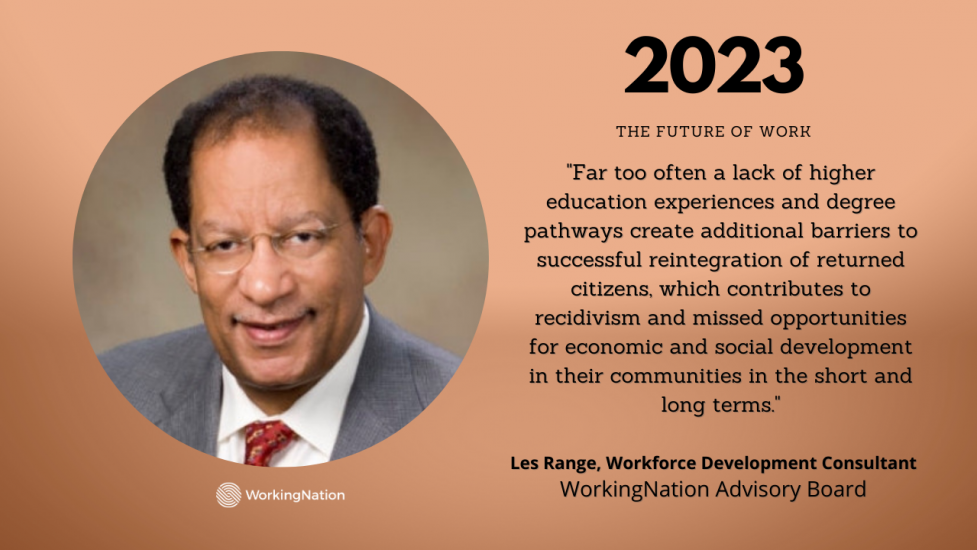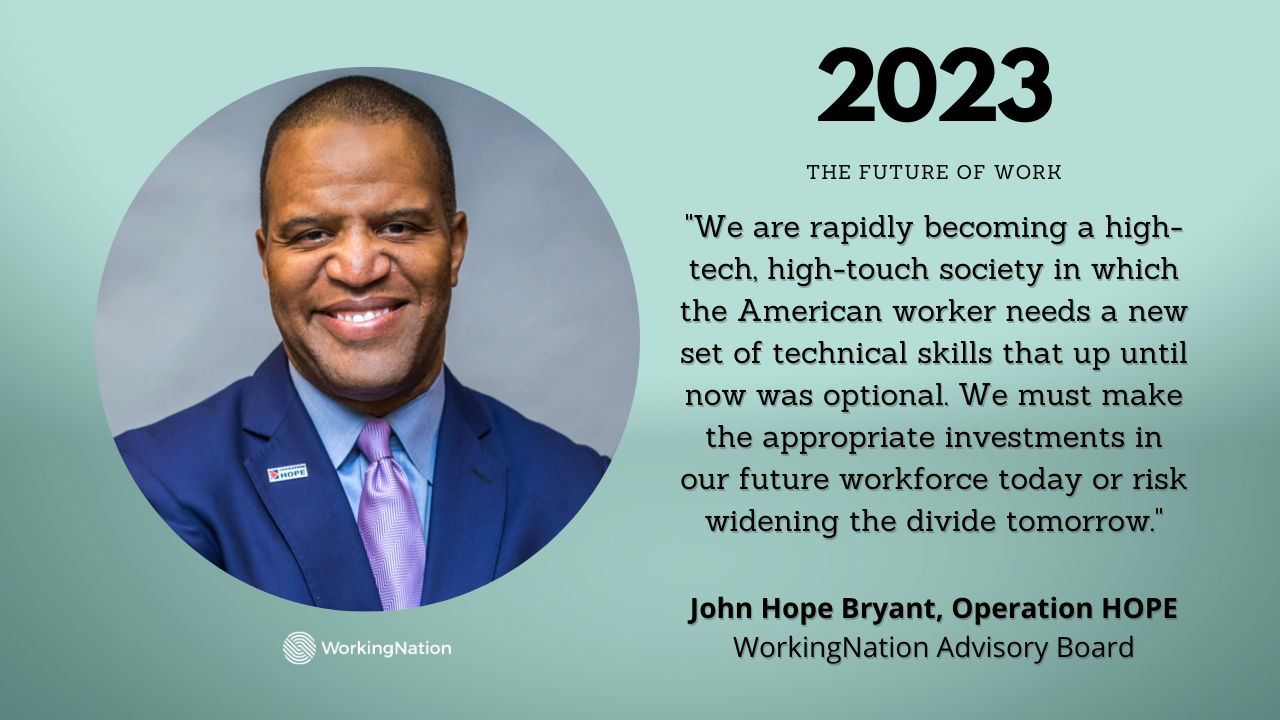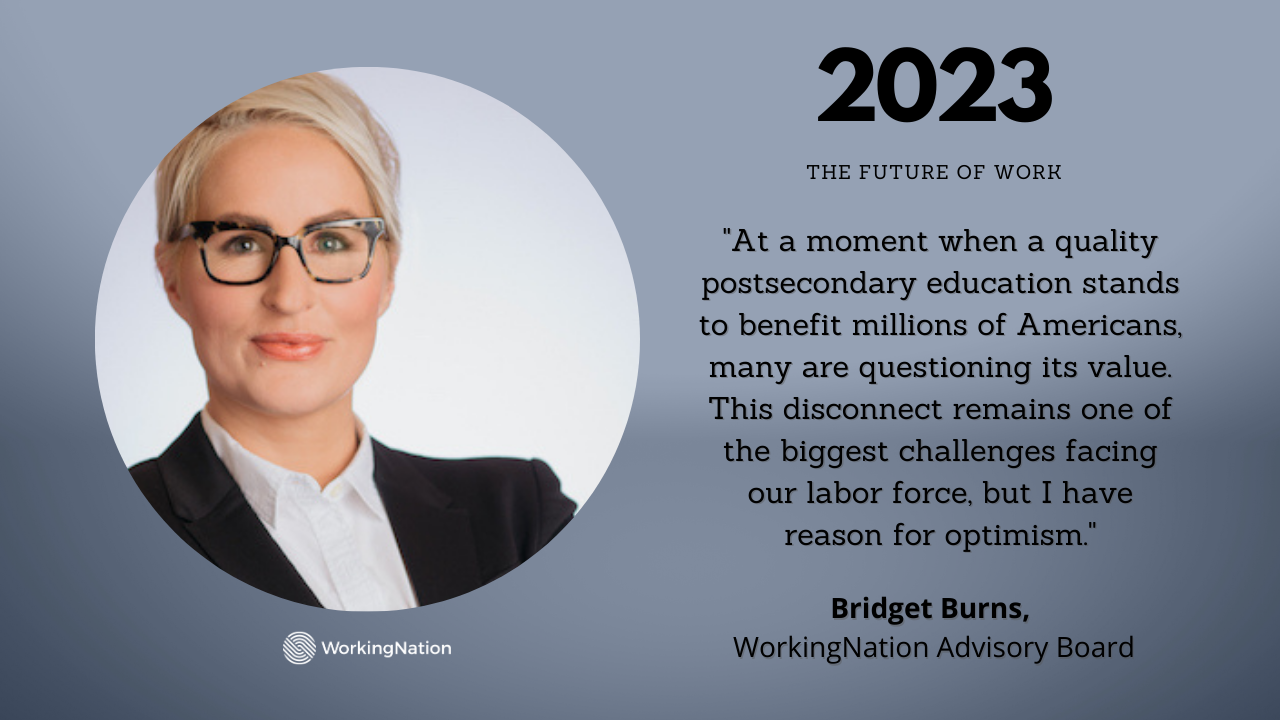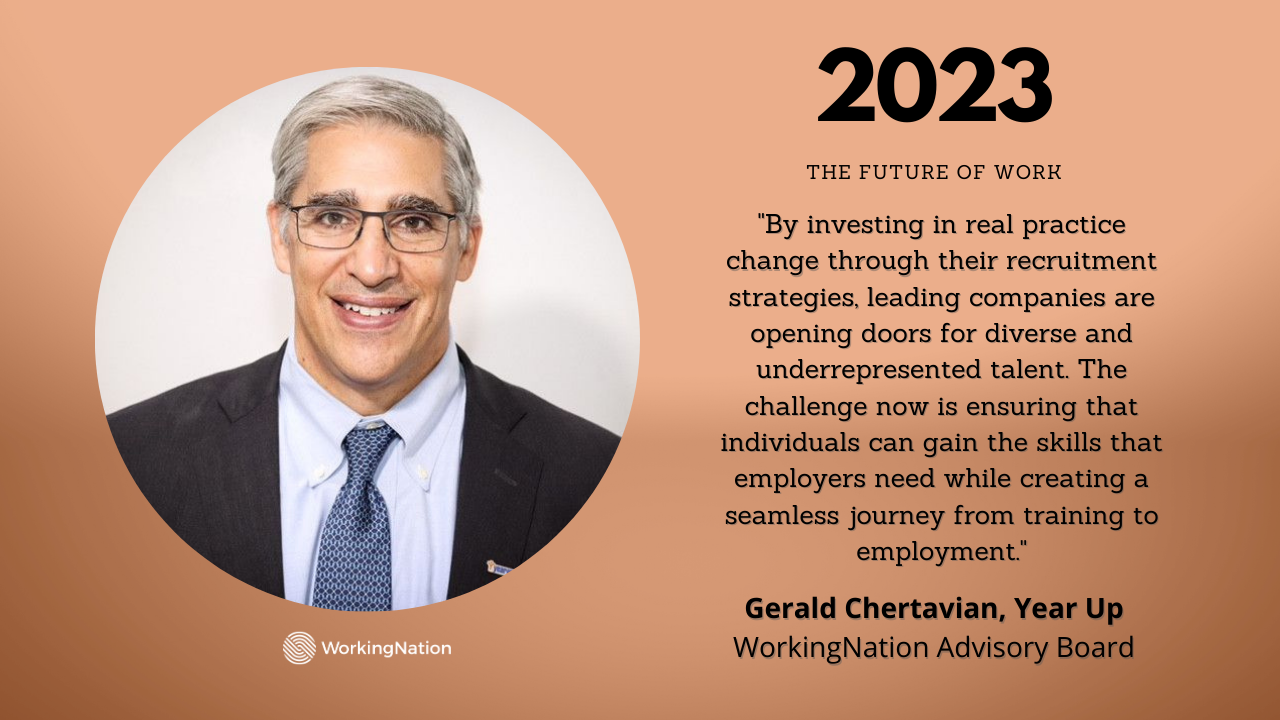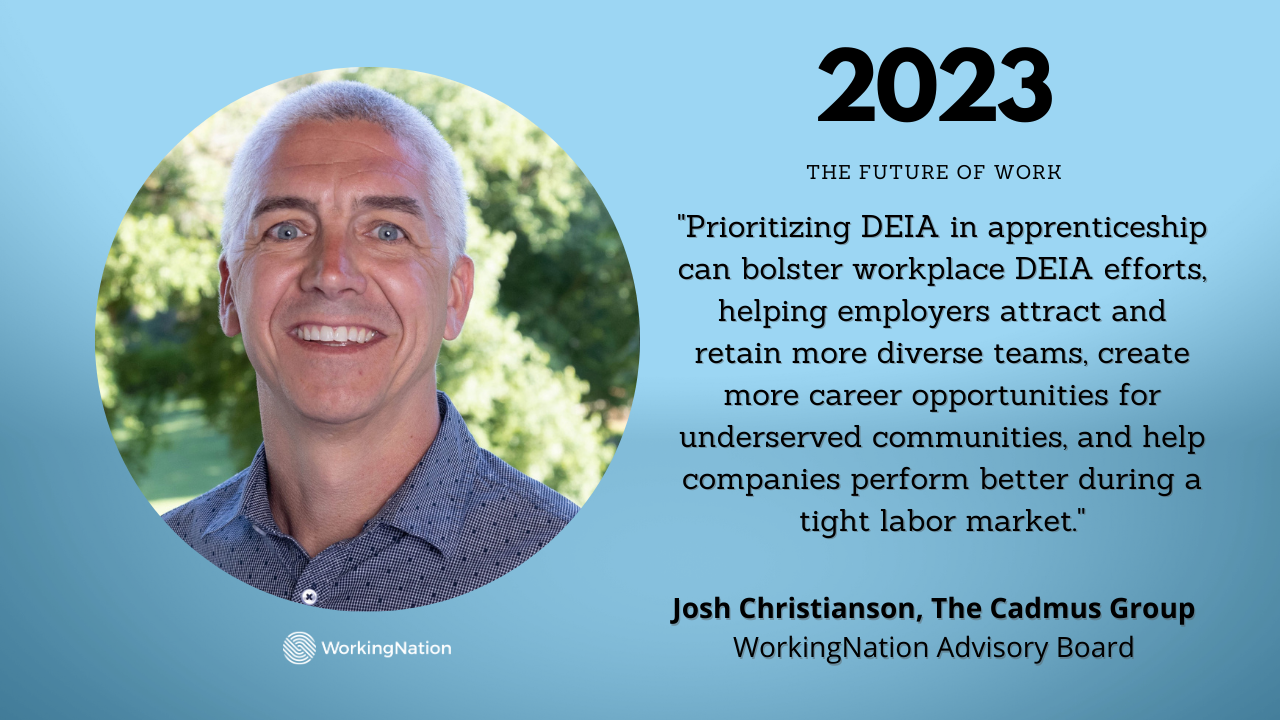We asked our WorkingNation Advisory Board to share their thoughts on the most important issues and challenges facing the workforce and the labor market in the coming year.
Les Range is an independent workforce and economic development consultant who served as the regional administrator for the U.S. Department of Labor’s Employment and Training Administration in Atlanta for five years. Prior to this position he was the cabinet level state workforce administrator in Mississippi.
Here are his thoughts on The Future of Work 2023.

“An area of interest for me this past year remains the importance of meaningfully engaging justice-involved youth and adults in the workforce system.
I first became interested when I was a state workforce agency leader. The Governor for whom I worked was busy recruiting new industry to the state. One day he asked me if we had enough workers to fill all the jobs his efforts were attracting. I was confident that, yes, we have the workforce potential, but I began to see a clear gap.
We began studying our labor force participation rate, which was below the national average. One thing we learned was that this metric only counted the number of people ages 16 and older who are employed or actively seeking employment, divided by the total non-institutionalized, civilian working-age population.
This prompted us to see a much needed potential for developing approaches to integrate justice-involved populations into the workforce training system.
When we started, the workforce system intake processes and skills assessment tools were moving to online platforms. The first barrier we encountered was that inmates were not allowed access to computers
This has changed over the years and there are now many successful programs targeted at removing or reducing barriers to successful reentry. This allows motivated individuals, who have served their time and paid their debt to society, to compete for a job, attain stable housing, support their children and their families, and contribute to their communities.
This past year, as pandemic recovery continues, I learned of two non-traditional approaches that I believe hold promise for further review and perhaps broad replication.
One is the Ohio Prison Education Exchange Project (OPEEP) operated by The Ohio State University. The project goes beyond the traditional prison education and training programs. It brings incarcerated students and campus students together in central Ohio prison facilities providing an educational experience that allows everyone to learn with and from people they might not typically encounter.
Course enrollment is split evenly between incarcerated and campus students. They meet in prison classrooms. All students earn credits and are taught by trained faculty. In this collaborative learning environment, campus students encounter more challenging and enriching learning spaces than they would on the predominantly-white OSU campus. Incarcerated students gain vital experience learning alongside campus students, helping them to hone their skills for reentry, better employment, and parenting future students.
The other program that caught my attention is the Mississippi Higher Education in Prison Program conducted by the Mississippi Humanities Council. A core tenant of this effort is the belief that the humanities have a unique responsibility to engage with all segments of society, offering intellectual tools for broad social understanding and critical integration into society.
This belief extends to those who are in prison.
With support from the Mellon Foundation and a number of state educational partners, the Mississippi Higher Education in Prison Program offers for-credit humanities courses at no cost to students who are incarcerated. These courses both fulfill basic degree requirements and help students recognize and cultivate the humanity of themselves and others.
These two programs are different from many of the prison education programs that are emerging across the country. They provide more than traditional academic learning and skill development.
The Ohio Prison Education Exchange Project and the Mississippi Higher Education in Prison Program are paving new ways to engage with and exchange learning that can have a deep impact on families and local communities.
Far too often a lack of higher education experiences and degree pathways create additional barriers to successful reintegration of returned citizens, which contributes to recidivism and missed opportunities for economic and social development in their communities in the short and long terms.
In the coming year, I hope to further explore these and other models that help expand the pool of workers who are available to meet the needs of employers, especially those that have been having trouble filling their positions in the current post-pandemic environment.”


